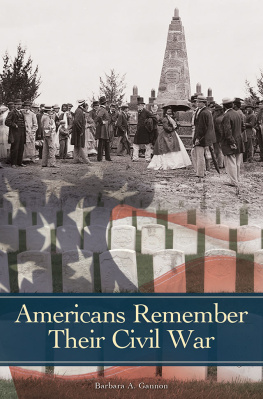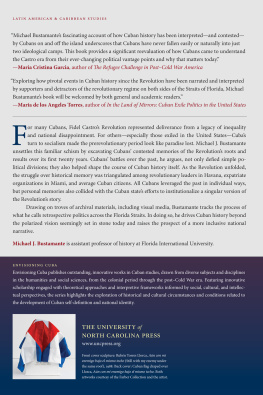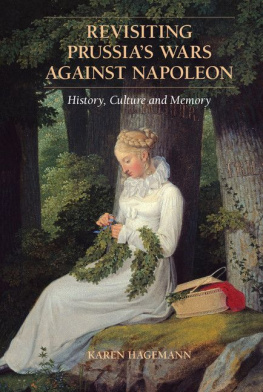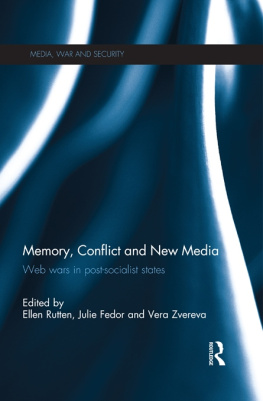MONUMENTAL CONFLICTS
Monumental Conflicts examines twentieth-century wars from World War I to the First Gulf War, each chapter analyzing how public memory has evolved over time. The chapters raise fascinating questions about war and memory:
Why are wars remembered as they are?
What factors drive changes in public perception?
What implications arise from remembering and commemorating a war or particular aspects of a war?
What does public memory of a war say about us as a society?
The volume is divided into three sections focusing on political evolution, negotiated memories of war, and national pride and covers international wars from Afghanistan to Vietnam and matters ranging from German deserter monuments to Vietnamese war tourism.
Derek R. Mallett is Assistant Professor of History at the US Army Command and General Staff College, Fort Gordon, USA. His publications include Hitlers Generals in America: Nazi POWs and Allied Military Intelligence (2013).
MONUMENTAL
CONFLICTS
Twentieth-Century Wars and
the Evolution of Public Memory
Edited by Derek R. Mallett
First published 2018
by Routledge
2 Park Square, Milton Park, Abingdon, Oxon OX14 4RN
and by Routledge
711 Third Avenue, New York, NY 10017
Routledge is an imprint of the Taylor & Francis Group, an informa business
2018 Derek R. Mallett
The right of Derek R. Mallett to be identified as the author of the editorial material, and of the authors for their individual chapters, has been asserted in accordance with sections 77 and 78 of the Copyright, Designs and Patents Act 1988.
All rights reserved. No part of this book may be reprinted or reproduced or utilised in any form or by any electronic, mechanical, or other means, now known or hereafter invented, including photocopying and recording, or in any information storage or retrieval system, without permission in writing from the publishers.
Trademark notice: Product or corporate names may be trademarks or registered trademarks, and are used only for identification and explanation without intent to infringe.
British Library Cataloguing-in-Publication Data
A catalogue record for this book is available from the British Library
Library of Congress Cataloging-in-Publication Data
A catalog record for this book has been requested
ISBN: 978-1-138-28227-8 (hbk)
ISBN: 978-1-138-28228-5 (pbk)
ISBN: 978-1-315-12254-0 (ebk)
Typeset in Bembo
by Sunrise Setting Ltd, Brixham, UK
CONTENTS
Derek R. Mallett
PART I
Monumental conflicts: The sacred and the political
Hanna Smyth
William Thomas Allison
Uri Rosenheck
Steven R. Welch
PART II
Negotiated memories of war
Stephen C. Murray
Brendan Wright
Christina Schwenkel
PART III
Expeditionary wars and national pride
Guillaume de Syon
Davide Borsani
Roger R. Reese
Robert T. Jones
Derek R. Mallett
In assembling a collection of essays such as this one, an editor/author accrues many debts. I would be remiss if I did not acknowledge at least some of the most important contributions to this volume. I hope this small token will serve as an appropriate display of my sincere appreciation.
First and foremost, I wish to thank the eleven authors who wrote individual essays for this volume. Hanna, Bill, Uri, Steven, Stephen, Brendan, Christina, Guillaume, Davide, Roger, and Robert all proved to be not only excellent scholars but a pleasure to work with as well. Thanks to each of you for your willingness to join me in this endeavor and, of course, for continuing to respond to my many e-mail messages. My thanks also go to Jeffrey K. Johnson for our early collaboration that started this journey years ago, and to Kimberly Guinta for her encouragement to stay with this project.
I also wish to thank my editor at Routledge, Eve Setch. Eve patiently responded to each of my many queries and provided solid guidance all along the way. Thanks for all of your contributions to this work. Thanks as well to Amy Welmers, Zoe Meyer, Kristy Barker, and Colin Read who worked to move this volume toward publication.
I offer special thanks to Michael R. Dolski and Bradley Keefer. Michael read an early draft of the introduction. His thorough review and critical analysis corrected several errors and shaped my understanding in important ways. What sound perspective the introduction may display is in part due to Michaels assistance. Brad read and commented on the entire manuscript twice, as well as reviewing the conclusion a third time. He went above and beyond what any reviewer could reasonably be asked to do and provided excellent comments and suggestions. Thank you both for helping make this volume what it is.
Finally, I am ever grateful for the love and support of my wife, Tasha, and my two wonderful daughters, Aviaq and Annika. The three of you will always be the brightest stars in my universe.
Derek R. Mallett
In the 1986 Warner Brothers film Heartbreak Ridge, a US Marine Corps force recon platoon led by Gunnery Sergeant Tom Highwayplayed by Clint Eastwoodrescues American medical students trapped on the island of Grenada. Following the rescue, Gunny Highway reports to his superior officer, Major Malcolm Powers, that his unit met heavy resistance along the way to the school. When Powers suggests that it was probably just local fanatics, Highway emphatically states that these were Cuban regulars with Russian rifles.1
This portrayal of Operation Urgent Fury, the name assigned to the 1983 American occupation of the Caribbean island of Grenada, is fictional. First, US Army Rangersnot Marinesevacuated the American students stranded at St. Georges University Medical School on Grenada. More importantly, Grenadians comprised a sizable number of the soldiers who opposed American forces during the campaign. In addition, the overwhelming majority of the Cuban soldiers who fought on Grenada consisted of construction workers with basic militia training, not regular army soldiers.
This might seem like quibbling, except that this motion picture represents the most popular portrayal of Operation Urgent Fury. In addition to emphasizing the role of the US Marines at the expense of the US Army, Clint Eastwoods film reinforces the idea initially put forth by the Reagan Administration that Cuban forces on the island were a formidable opponent. The film also supports the notion that American military personnel landed in Grenada primarily to protect American citizens enrolled in the medical school. Consequently, as one might expect, the US government produced the first public narrative of the causes and conduct of the American military campaign in Grenada. This narrative was then corroborated by what the scholar Viet Thanh Nguyen characterizes as the industry of memory.2
Why does it matter? First, as previously noted, Heartbreak Ridge









